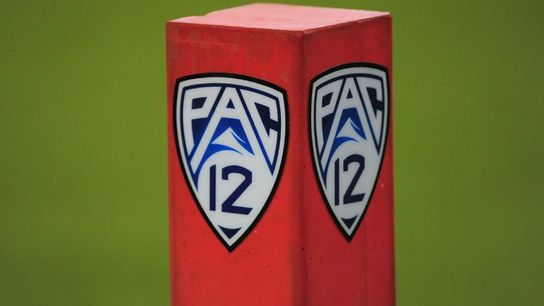On the field, Saturday was a success for the Pac-12. The day began an ended with Pac-12 football. League favorites USC (on Fox) and Oregon (on ABC) earned victories in the biggest television windows of the conference's major television partners.
But it's impossible to ignore the conditions off the field, and the Pac-12's off-the-field prognosis is not looking good.
For starters, two of the Pac-12's six scheduled games did not happen, due more to contact tracing requirements than a preponderance of positive tests.
Cal canceled its scheduled game with Washington due to a single defensive lineman testing positive (the player is reportedly asymptomatic). In his Hotlinenewsletter, the esteemed Jon Wilner got a Berkeley health official to confirm that a single positive test would require any close contact to quarantine the full 14 days -- no matter what.
If the defensive linemen currently in quarantine are not released this week — they have tested negative since their last contact with the infected teammate — then the Bears likely will be forced to cancel this week’s trip to Arizona State.
But that is, potentially, just the beginning.
If a single positive tests wipes out an entire position group for 14 days, Cal’s season is on the brink.
Imagine the Bears emerging from this two-week shutdown, only to have a third-string left tackle test positive. The entire offensive line would be shut down for two weeks, and more games would be canceled.
The calculus is just different in the Pac-12 than everywhere else. Remember, the Pac-12 was the first conference to secure a daily testing partner (most leagues still don't have one) and was the last to return to the field. Though it has the most robust testing-and-tracing program in college football, the Pac-12 left final authority up to each campus, which means it's up to each local health department.
It's a reminder that, outside of a bubble environment, you can't separate sports from the society in which they're played.
Case in point: Utah. Governor Gary Herbert has applied a statewide mask mandate while also limiting public gatherings in an attempt to stem the tide of rising cases. The Utes did not play their scheduled game with Arizona on Saturday, and on Monday Kyle Whittingham said they currently have scout teamers taking first-team reps.
The school also confirmed that it recently had a player whose symptoms required hospitalization for treatment, though he has since been discharged.
Elsewhere, Washington State played (and won) without 32 players, and Stanford's starting quarterback was scratched 90 minutes before kickoff.
That's a third of the conference right there.
Throughout this season we've refrained from "Uh oh, Conference X is starting to unravel!!!" alarmism. The ACC, SEC and Big 12 each had their struggles as recently as mid-October, but each league has seen its forecasts improve greatly in the past three weeks. Since Oct. 24, the Big 12 has played 15 of 15 scheduled games, the SEC is 14-of-14, the ACC is 19-of-20.
The COVID life, as we've all learned in these past eight months, is a day-to-day, moment-to-moment grind. Just as the outlook could worsen tomorrow in SEC country, so could it improve in the Pac-12.
But the underlying truth here is that the math is just different in the Pac-12, and there's no changing it this season.
